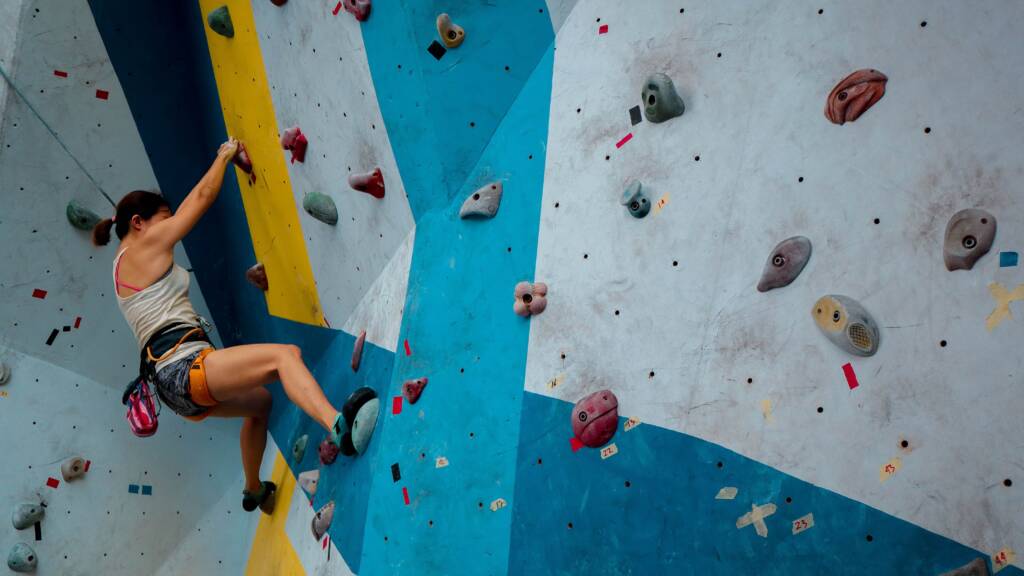An art-house cinema. A loft-like private dorm room. A lazy river where students unwind.
As you head on college tours, you’re likely to see some eyebrow-raising college amenities. But how important are they, really? And as you consider different colleges, what should you be looking for?
“Amenities are mainly a marketing ploy,” says Emily Butler, President of Butler College Counseling, a college counseling firm located in Greenville, South Carolina. They’re designed to make you do a double-take and share on social media. And in the past two decades, many colleges have been part of what’s been dubbed a “college amenity arms race” as a bid to attract students. But all those amenities can be distracting—and may cause you to lose sight of what matters most to you in a college. “Just because there’s an all-you-can-eat ice cream bar and a reserved parking spot doesn’t mean it’s the right fit for you,” reminds Butler.
What’s Your “Why” for College?
On a campus tour, you might not see how much those amenities will add to your bottom line. It’s not uncommon for certain dorm rooms to be priced on different tiers, and that loft-like suite you visited could cost thousands of dollars more than a traditional dorm, notes Butler. For example, at High Point University in North Carolina, living in a private room will cost over $4,000 on top of the over $16,000 students have to pay for room and board. Students who choose to live in a private room in a high-end dorm that includes a movie theater and arcade will pay over $13,000 extra per year.
But the amenities are enticing. One recent survey from the Art & Science Group, a higher ed consulting and research firm, found that 44% of high school students would prefer a more expensive school if it had more amenities and services. On the flip side, 39% of nearly 800 students surveyed said they would prefer a “no-frills” less expensive institution.
To help you focus on what’s most important in a college, think of what you want from college beyond a degree. It could be traveling and studying abroad, taking classes from a certain professor, playing a sport, or pursuing a specialized major. Jot down what excites you about college and what college means for your future. That can help you narrow down the amenities and features that are most important to you.
Understanding Overall Value
As you compare options, it’s smart to consider just how much you’ll use the amenities throughout your time in college. Sure, a rock wall in the student center looks impressive. But if you’re not already an avid rock climber, how often will you actually use the facility? And sometimes, you might find similar—or even better—options in the towns surrounding campus. While an on-campus lazy river might seem amazing, you could also hit a water park a few miles away with friends and achieve the same bonding and relaxation.
Talk with students and see what they like about the school. And think about what you’re most excited about doing, both for academics and extracurriculars. For example, if you love acting or dance, you might be wowed by a Broadway-like theater. But talking with students will help you understand how much you’ll be performing onstage. It could be that a school with less impressive facilities has more opportunities for performance.
Which Amenities Matter the Most?
One thing to note, Butler says, is that some of the most enticing nonessential college amenities may not even be visible. For example, one popular amenity is a four-year graduation guarantee. These guarantees promise that if you don’t graduate within four years and follow certain criteria, such as complying with academic requirements and meeting regularly with your academic advisor, all tuition and fees will be waived for the rest of the time it takes to complete your degree. Both public and private colleges including Randolph-Macon, the College of Liberal Arts at Oregon State University, and Iowa State University offer this sort of guarantee (with some exceptions depending on programs).
“Hidden amenities” may also include auxiliary services, like career services, health services, and a counseling center. It can also be helpful to make sure that amenities align with your needs. For example, if you have learning differences, understanding what schools offer in terms of note-taking accommodations may be critical for you.
Bottom line: A lazy river can absolutely be part of the “pro” list for attending an institution. But it’s just as important to be mindful of other considerations, including cost and what other amenities might be more relevant to your overall college experience.




